Kaip Sustiprinti Širdį: Kardiologų Patikrinti Metodai Be Vaistų
Kasmet pasaulyje nuo širdies ir kraujagyslių ligų miršta apie 17 milijonų žmonių, ir šios ligos išlieka pagrindinė lietuvių mirties priežastis. Tačiau gera žinia ta, kad…

Amino acids are vital for our body. They are essential for our body functions such as tissue repair, digestion and hormone production. In addition, amino acids can help fight I'm tired, improve memory and strengthen the immune system. However, did you know that amino acids are more than just the building blocks of protein? In this article, we will reveal their benefits and capabilities.1
Amino acids are organic compounds made up of nitrogen, hydrogen, carbon and other elements. They are the main component of proteins and are essential for our body. There are 20 essential amino acids that affect our body's function and health.
Amino acids are vital for the human body, they are the building blocks of proteins that we get from food. Proteins is a building block in our body that our muscles need to grow and recover after exercise.

The power of amino acids lies in their ability to perform many functions in our body. They are necessary for our body's cell growth, tissue repair and normal body functioning. In addition, amino acids can help strengthen our immune system, reduce stress and improve our mood.
The benefits of amino acids are widely recognized in the scientific community. Research shows that amino acids can help improve memory, reduce fatigue, boost the immune system, and even help fight certain diseases. However, despite their benefits, it is important to know that excessive consumption of amino acids can cause certain side effects.
Amino acids are composed of carbon, hydrogen, nitrogen, and oxygen atoms, and depending on the specific amino acid, may contain other elements. Each amino acid consists of an amino acid group (-NH2), a carboxyl group (-COOH), and a single hydrocarbon, which is different for each amino acid. It is this that determines the properties and functions of the amino acid.
Amino acids can join together to form chains called polypeptides. It is the basis of protein. Proteins are large molecular complexes made up of one or more polypeptide chains. Each protein has a unique sequence of species and amino acids that determine its three-dimensional structure and function.
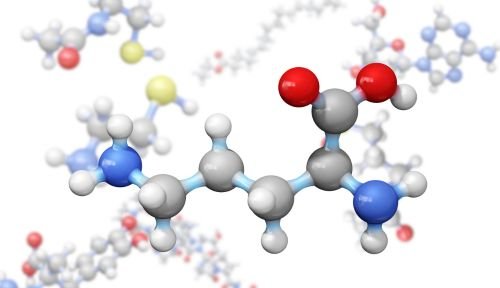
What are the different types of amino acids?
Your body needs 20 different types of amino acids to function properly. These 20 amino acids combine differently to make proteins in your body. Amino acids are divided into three groups:
There are those that the body cannot produce on its own. These are: histidine, isoleucine, leucine, lysine, methionine, phenylalanine, threonine, tryptophan and valine. All of these amino acids must be obtained from diet or supplements.
Histidine helps produce a brain chemical (neurotransmitter) called histamine. Histamine plays an important role in your body's immune system, digestion, sleep and sexual function. Participates in the synthesis of hemoglobin and may influence the regulation of allergic reactions.
Isoleucine is involved in the metabolism of the body's muscles and the activity of the immune system. It also helps your body produce hemoglobin and regulate energy levels. Regulates blood sugar levels and stimulates hormone release.
Leucine helps the body produce protein and growth hormones. It also helps muscle tissue grow and repair, heal wounds, and regulate blood sugar.
Lysine is involved in the production of hormones and energy. It is also important for calcium and immune function. Necessary for collagen synthesis, important for skin and bone health. Helps absorb calcium and stimulates the immune system. May help regulate blood sugar.
Methionine helps the body's tissue growth, metabolism and detoxification. Methionine also aids in the absorption of key minerals, including zinc and selenium. important antioxidant, helps to detoxify the body. Participates in the synthesis of cystine and other important molecules.
Phenylalanine is needed to make the brain's chemical messengers, including dopamine, epinephrine, and norepinephrine. It is also important for the production of other amino acids. May affect mood and pain perception.
Threonine plays an important role in the production of collagen and elastin. These proteins give structure to the skin and connective tissue. They also help form blood clots, which help prevent bleeding. Threonine also plays an important role in fat metabolism and the functioning of your immune system.
Tryptophan helps maintain proper nitrogen balance in your body. It also helps produce a brain chemical (neurotransmitter) called serotonin. Serotonin regulates your mood, appetite and sleep.
Valine is involved in muscle growth, tissue regeneration and energy production. Helps regulate nitrogen balance in the body.
There are those that the body can make on its own. These are: alanine, arginine, asparagine, aspartate, cysteine, glutamine, glutamate, glycine, proline, serine and tyrosine. Although these amino acids are synthesized by the human body, it may sometimes be necessary to obtain them additionally, especially during intense physical exertion or stress.
Some non-essential amino acids are classified as conditional. This means that they are only considered indispensable when you are sick or stressed. The conditional amino acids are arginine, cysteine, glutamine, tyrosine, glycine, ornithine, proline and serine.

Some people may be deficient in amino acids due to poor nutrition, certain medical conditions, or certain lifestyle factors. For example, vegetarians and vegans may have difficulty getting enough essential amino acids because they do not eat meat, which is the main source of protein.
For example, lysine is an essential amino acid whose deficiency can cause fatigue, hair loss, anemia and reproductive problems. This amino acid can be deficient in people who do not consume animal products.
Another common deficiency is methionine, which is important for protein synthesis, detoxification and other bodily functions. Methionine deficiency can cause skin, hair and nail problems, as well as lower the immune system.
Amino acids are the building blocks of proteins, and as such they perform many important functions in our bodies. They are essential for the growth, repair and maintenance of our cells, as well as the functioning of our organs, tissues and systems.
For example, amino acids are essential for our muscle growth and recovery after exercise. They are also important for our immune system because they are essential for the production of antibodies that help our body fight infections.
Amino acids also play an important role in our nervous system. Some amino acids are essential for the production of neurotransmitters, which are chemicals that transmit signals between our brain cells.

There are many interesting facts about amino acids that may surprise you. For example, did you know that amino acids can be used as an energy source? Some amino acids can be broken down into energy when our body needs extra calories, such as during intense exercise.
In addition, some amino acids can help regulate our mood and sleep. For example, tryptophan is an essential amino acid that is essential for the production of serotonin, the happy hormone. Because serotonin is essential for regulating our mood and sleep, a lack of tryptophan can lead to depression, anxiety, and sleep disturbances.
Amino acids have been found in meteorites, suggesting they may occur on other planets, fueling speculation about the origin of life in the universe.
Amino acid sequences in proteins are used to determine evolutionary relationships between different organisms. Similar amino acid sequences indicate kinship or close evolutionary relationship.
Amino acids are essential to our diet because they are the building blocks of proteins, which are the building blocks of our cells and tissues. In addition, amino acids are essential for our body's functions such as growth, repair, energy production, and immune system function.
Amino acids are also necessary for the functioning of our brain. Some amino acids are essential for the production of neurotransmitters that transmit signals between our brain cells. In addition, some amino acids can help regulate our mood and sleep.
How many amino acids you need per day depends on your age, gender, weight, level of physical activity and health status. Health organizations set recommended daily amounts of protein based on gender and age, and protein is the main source of amino acids.
For adults, the recommended intake is approximately:
There are many scientific studies showing the benefits of amino acids for our body. For example, research shows that amino acids can help strengthen our immune system, improve our mood and sleep, help our bodies recover from exercise, help our cells grow and repair, regulate our appetite and metabolism, and much more.
In addition, some amino acids such as leucine, isoleucine and valine are particularly important for the growth and repair of our muscles. These amino acids, called BCAAs (branched chain amino acids), are especially popular among athletes and bodybuilders.
There are many ways you can include more amino acids in your diet. One of the best ways is to eat more protein-rich foods such as meat, fish, dairy products, eggs, grains, legumes and vegetables.
You can also supplement your diet with amino acid supplements. There are many different types of amino acid supplements available in stores or online, including BCAAs, essential amino acid blends, isolated amino acids, and more.
However, before taking any supplement, you should consult with a healthcare professional to ensure that it is safe and appropriate for your individual health needs.
Amino acid intake depends on your individual needs. If you are an athlete or actively train, you may need to consume more amino acids to meet your muscle needs. However, if your diet is balanced and you have enough protein, you may need to consume less amino acids.
Athletes, especially those who engage in intense training, may need additional amino acids to accelerate muscle recovery and increase muscle mass. However, it is always important to remember that too much amino acid consumption can be harmful to your health, so you should always stick to the recommended dosages.
Although amino acids are essential for our body, consuming too much of them can cause side effects. For example, consuming too much protein can cause digestive problems such as constipation or diarrhea and can strain our kidneys.
Also, some people may be allergic to certain amino acids or their supplements. If you notice any allergy symptoms such as skin redness, itching, difficulty breathing or swelling of the face, you should stop using them immediately and consult a doctor.
It is also important to mention that not all amino acids are equally beneficial. Some amino acids, such as glutamate and aspartate, can be harmful in high doses because they can cause damage to nerve cells.
Amino acids are found in a variety of foods. For example, meat, fish, dairy products, eggs, grains, legumes and vegetables are rich in protein, which is the main source of amino acids.
In addition, there are many nutritional supplements that contain amino acids. For example, there are BCAA supplements, essential amino acid blends, isolated amino acids, and more. These supplements can be found in stores or online.
However, before taking any supplement, you should consult with a healthcare professional to ensure that it is safe and appropriate for your individual health needs.
Amino acids are essential for our bodies and can be obtained from a variety of sources, including food and dietary supplements. In this article, we will discuss the role of amino acids in the functioning of our body and how they can help us achieve our health goals.
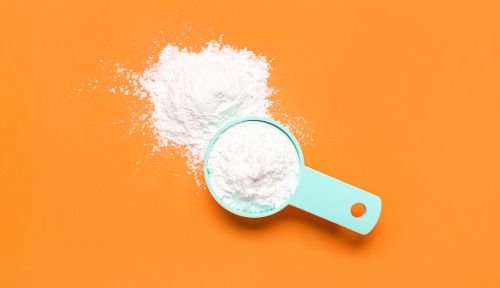
Amino acids can be taken in different forms, including powder, liquid, or capsules/tablets. The form you choose depends on your personal needs and convenience.
The powder is easily mixed with water, juice or other beverages, making it a convenient way to consume amino acids. They are also an economical choice as they are often cheaper than other forms.
Liquid is the fastest digesting form of amino acids and is an ideal choice for those who need a quick source of amino acids, for example during training.
Capsules and tablets are a convenient way to take amino acids because they can be easily carried and taken at any time. They are a good choice for those who want to control their amino acid dosage.
Amino acids are divided into three main categories: BCAA, EAA and complete complex.
The BCAA, or branched chain amino acid complex, consists of three essential amino acids: leucine, isoleucine and valine. They are important for muscle recovery and growth, as well as energy production.
EAA, or essential amino acids. The complex consists of nine amino acids that our body cannot produce. EAAs are recommended for those whose diet is deficient in protein.
A complete amino acid complex includes all 20 amino acids that are the building blocks of proteins. This complex is suitable for those who need to compensate not only essential, but also all the remaining amino acids.
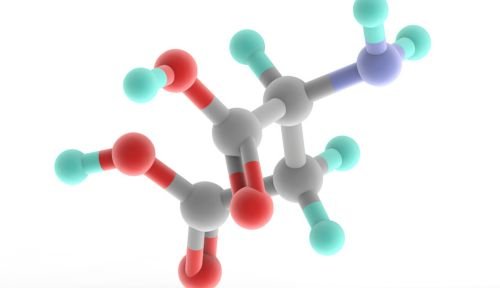
Amino acids are organic compounds that bind together into chains called proteins. They play a critical role in the growth, repair and normal functioning of the body.
Amino acids help in the growth and repair of body tissues, participate in the production of hormones and enzymes, strengthen the immune system and regulate metabolism.
Some amino acids, such as tryptophan, act as neurotransmitters or their precursors, helping to regulate mood, sleep, memory, and learning.
Yes, but it's important to consume a variety of plant-based protein sources to ensure you're getting all the essential amino acids.
Amino acids are found in a variety of foods. The best sources are meat, fish, dairy products, eggs, soy products, wheat gluten and wheat germ. But you can also get amino acids from vegetables, nuts, seeds, and grains.
Overdose is very rare, but theoretically possible, especially with large amounts of amino acid supplements. Overdose symptoms may include nausea, vomiting, abdominal pain, headache, and anxiety. If you think you have overdosed, you should contact your doctor immediately.
The benefits of amino acids are invaluable. They are necessary for our body to grow, regenerate and function properly. Amino acids help produce hormones, strengthen the immune system, repair muscles, regulate mood, and many other important functions.
A healthy and balanced diet rich in amino acids can help maintain optimal health and well-being. However, if you can't get enough amino acids from your diet, you may want to consider taking supplements.
The benefits of amino acids are a real miracle. Invest in your health and well-being by ensuring optimal amino acid intake. This is the power you can unlock that can help you reach your health goals. So, start now and watch your body transform with all the amino acids it needs.
Kasmet pasaulyje nuo širdies ir kraujagyslių ligų miršta apie 17 milijonų žmonių, ir šios ligos išlieka pagrindinė lietuvių mirties priežastis. Tačiau gera žinia ta, kad…

Artificial intelligence in medicine has made impressive progress – it has already successfully passed medical licensing exams and can handle internal medicine cases. Even more impressive is that special…
The human heart beats an average of more than 2.5 billion times during a lifetime. This amazing organ works tirelessly to maintain a vital pulse rhythm, the rate of which (pulse rate)…

KIKI Health Zeolitas - Ceolitas, milteliai, 60 g

Trace Minerals Mega Magnesium 400 mg. Liquid with minerals, 118 ml.
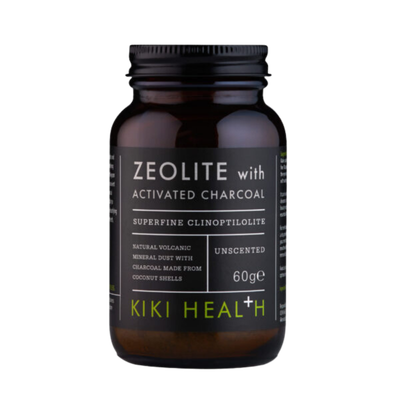
KIKI Health Zeolitas - Ceolitas su aktyvuota anglimi, milteliai 60 g.
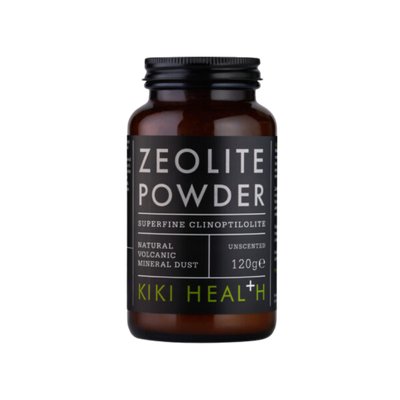
KIKI Health Zeolitas - Ceolitas, milteliai, 120 g.
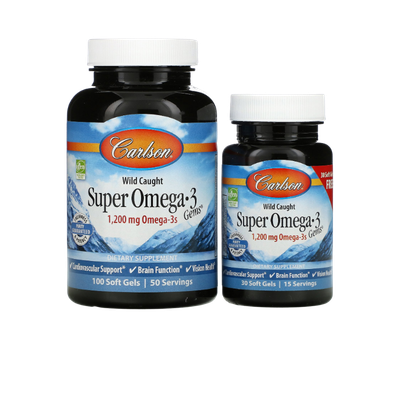
SUPER OMEGA-3 - norvegiški žuvų taukai su Omega-3, didelė koncentracija, 100+30 kapsulių
| Cookie | Duration | Description |
|---|---|---|
| cookielawinfo-checkbox-advertisement | 1 year | Šį slapuką nustato GDPR Cookie Consent papildinys. Slapukas naudojamas išsaugoti vartotojo sutikimą dėl slapukų kategorijoje „Analitiniai“. |
| cookielawinfo-checkbox-analytics | 11 mėnesių | Šį slapuką nustato GDPR Cookie Consent papildinys. Slapukas naudojamas išsaugoti vartotojo sutikimą dėl slapukų kategorijoje „Analitiniai“. |
| cookielawinfo-checkbox-functional | 11 mėnesių | Slapukas nustatomas pagal GDPR slapukų sutikimą, kad būtų įrašytas vartotojo sutikimas dėl slapukų kategorijoje „Funkciniai“. |
| cookielawinfo-checkbox-necessary | 11 mėnesių | Šį slapuką nustato GDPR Cookie Consent papildinys. Slapukai naudojami saugoti vartotojo sutikimą dėl slapukų kategorijoje „Būtini“. |
| cookielawinfo-checkbox-others | 11 mėnesių | Šį slapuką nustato GDPR Cookie Consent papildinys. Slapukai naudojami saugoti vartotojo sutikimą dėl slapukų kategorijoje „Kiti“. |
| cookielawinfo-checkbox-performance | 11 mėnesių | Šį slapuką nustato GDPR Cookie Consent papildinys. Slapukai naudojami saugoti vartotojo sutikimą dėl slapukų kategorijoje „Vykdymas“. |
| elementor | never | Šį slapuką naudoja svetainės „WordPress“ tema. Tai leidžia svetainės savininkui realiuoju laiku įdiegti arba keisti svetainės turinį. |
| viewed_cookie_policy | 11 mėnesių | Slapuką nustato GDPR Cookie Consent įskiepis ir jis naudojamas norint išsaugoti, ar vartotojas sutiko, kad būtų naudojami slapukai, ar ne. Jame nesaugomi jokie asmens duomenys. |
| Cookie | Duration | Description |
|---|---|---|
| _ga | 2 metai | _ga slapukas, įdiegtas Google Analytics, apskaičiuoja lankytojų, seansų ir kampanijos duomenis, taip pat seka svetainės naudojimą svetainės analizės ataskaitoje. Slapukas išsaugo informaciją anonimiškai ir priskiria atsitiktinai sugeneruotą skaičių unikaliems lankytojams atpažinti. |
| _ga_JWS80V051Z | 2 metai | Šį slapuką įdiegė Google Analytics. |
| omnisendSessionID | 30 minučių | Šį slapuką nustato teikėjas Omnisend. Šis slapukas naudojamas unikaliam seanso ID nustatyti. Slapukas statistiniais tikslais renka informaciją apie lankytojų elgesį svetainėje. |
| soundestID | sesijos metu | Šį slapuką nustato teikėjas Omnisend. Šis slapukas naudojamas norint nustatyti, ar lankytojas svetainėje yra naujas, ar lankytojas lankėsi anksčiau. |
| Cookie | Duration | Description |
|---|---|---|
| omnisendAnonymousID | 1 year | Šį slapuką nustato teikėjas Omnisend. Šis slapukas naudojamas išsaugoti vartotojo veiksmą svetainėje su unikaliu ID. Slapukas užšifruoja lankytojo duomenis, kad būtų apsaugoti naudotojo duomenys. |
| soundest-views | sesijos metu | Aprašymas negalimas. |
| woocommerce_recently_viewed | sesijos metu | Aprašymas nepasiekiamas. |
